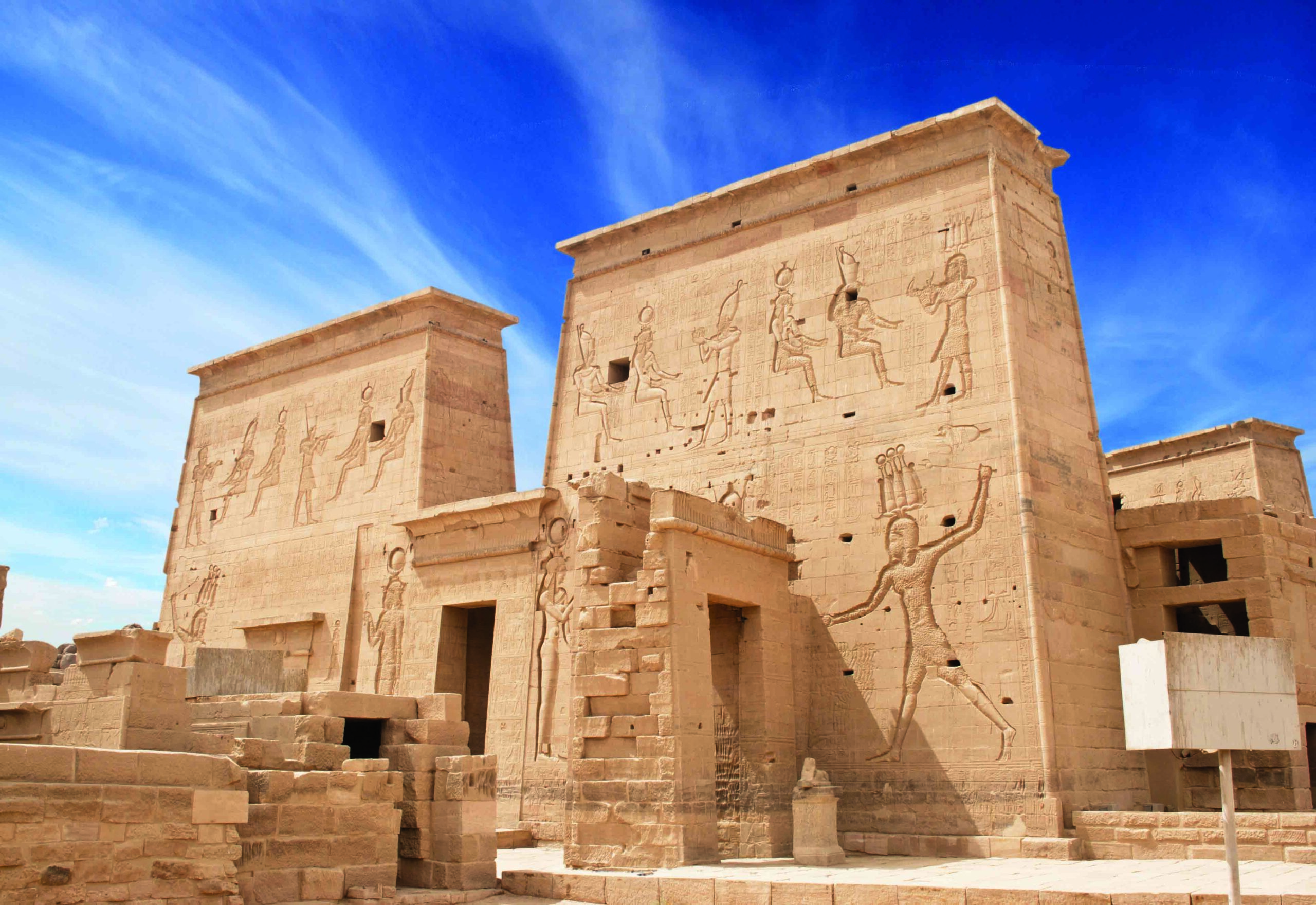KENT, OHIO—Archaeologist Metin Eren of Kent State University suggests that Clovis points were more likely to have been used as knives to cut meat from already dead mammoths, or as dart tips to scare away other scavengers, than as weapons for killing such large animals, according to a Science News report. Using measurements taken from preserved Asian woolly mammoths and Columbian mammoths, Eren and his colleagues estimate that the layers of skin, fat, dense fur, and long outer hairs measured from seven to 12 inches for the woolly mammoth, and several inches less for a Columbian mammoth, which may not have had the thick layer of underfur. Eren notes that the animals’ internal organs were also protected by the bones of their rib cages. The researchers then shot replica Clovis points into clay blocks, and found that the Clovis points traveled an average of just seven inches through the material. Smaller points tended to travel deeper into the blocks than the larger ones, Eren explained, but their broad tips limited penetration. When the replica points were fired at oak boards, which are not as hard or dense as ribs, all but three points broke on the first shot. Yet broken points are not commonly found at presumed kill sites, Eren said. Read the original scholarly article about this research in Journal of Archaeological Science: Reports. To read about a campsite used by hunters of the Clovis culture 13,000 years ago, go to "Around the World: Michigan."
Prehistoric Scavengers May Have Crafted Clovis Points
News January 12, 2022
Recommended Articles
Top 10 Discoveries of 2024 January/February 2025
Reindeer Hunters’ Wall
Bay of Mecklenburg, Baltic Sea
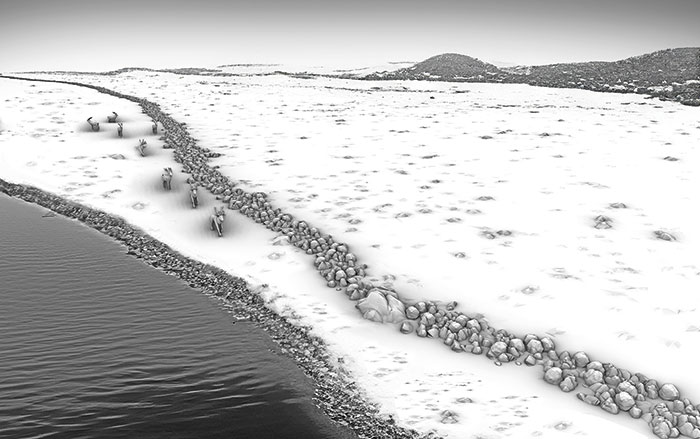
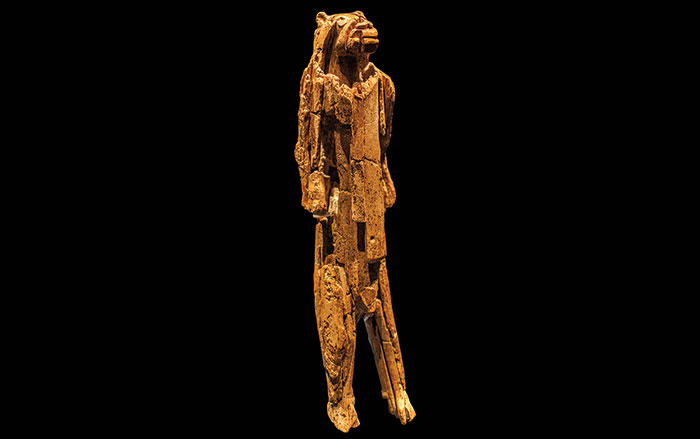
Digs & Discoveries July/August 2023
Big Game Hunting
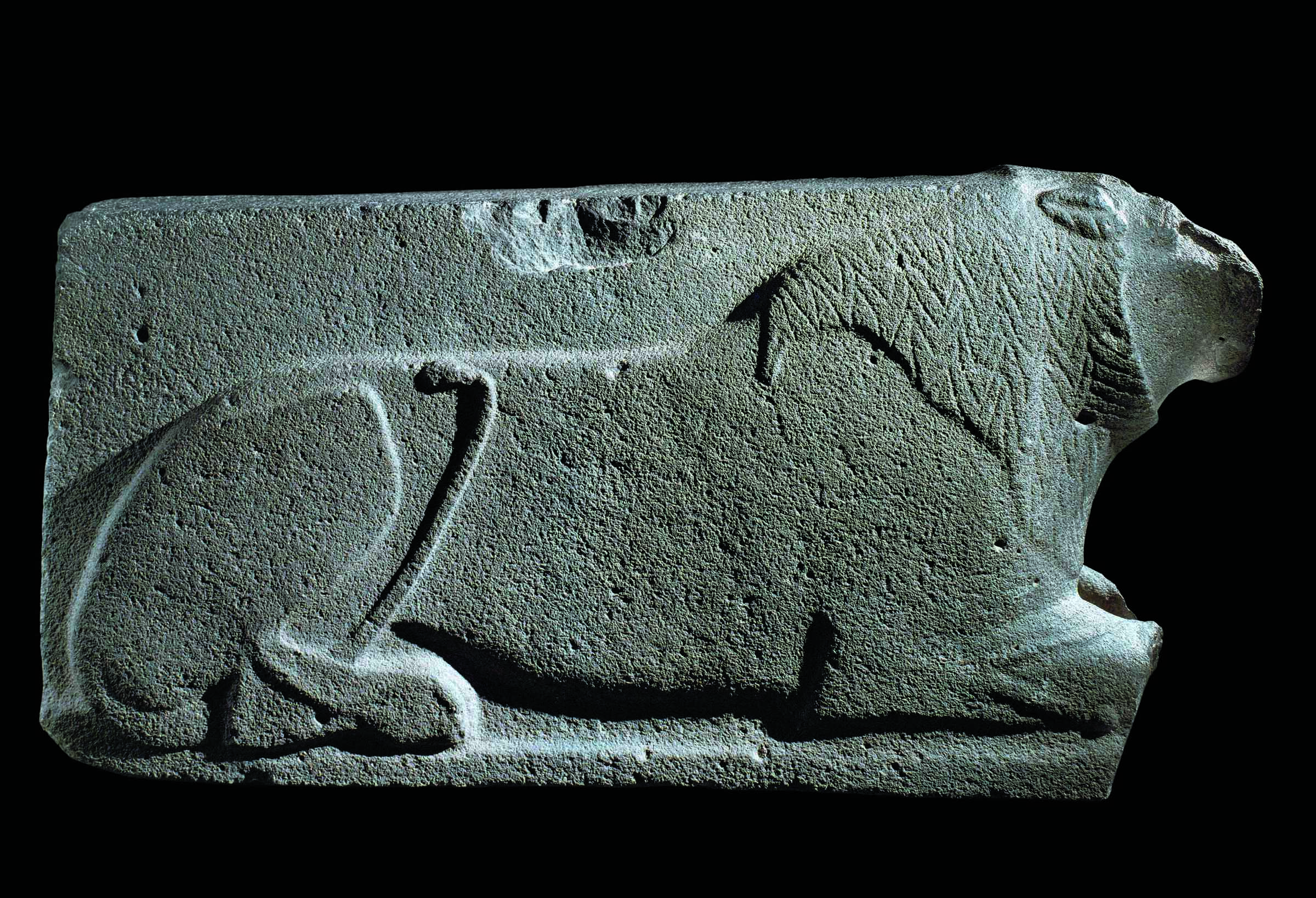
Top 10 Discoveries of 2022 January/February 2023
Neolithic Hunting Shrine
Jibal al-Khashabiyeh, Jordan
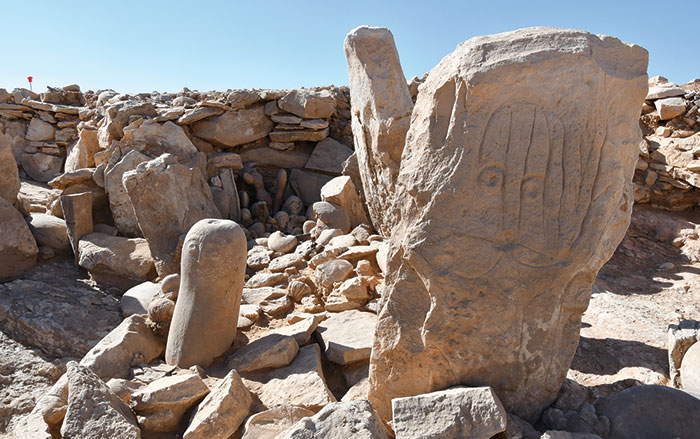
-
Features November/December 2021
Italian Master Builders
A 3,500-year-old ritual pool reflects a little-known culture’s agrarian prowess
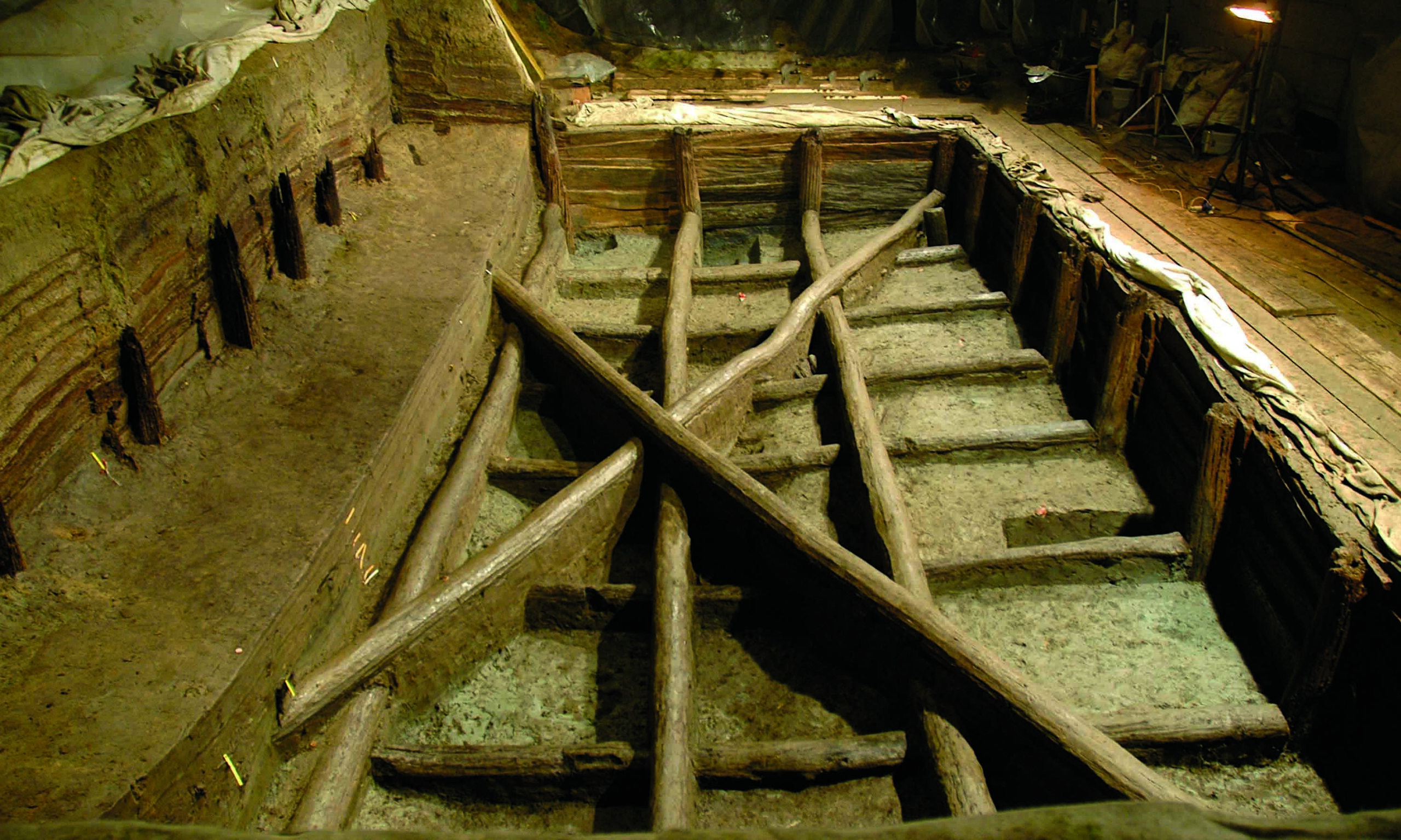 (Ministero della Cultura)
(Ministero della Cultura) -
Features November/December 2021
Ghost Tracks of White Sands
Scientists are uncovering fossilized footprints in the New Mexico desert that show how humans and Ice Age animals shared the landscape
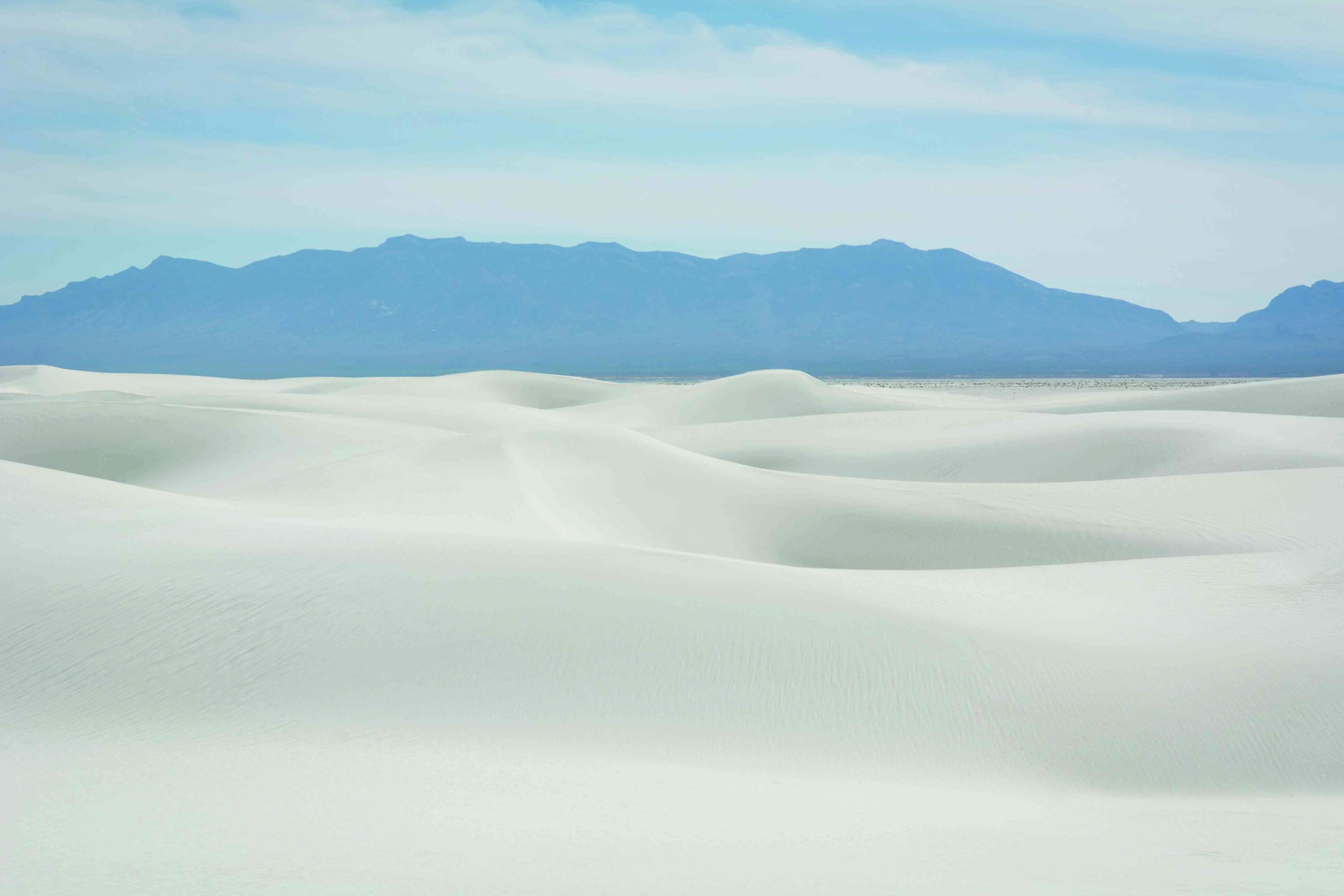 (Jerry Redfern)
(Jerry Redfern) -
Features November/December 2021
Piecing Together Maya Creation Stories
Thousands of mural fragments from the city of San Bartolo illustrate how the Maya envisioned their place in the universe
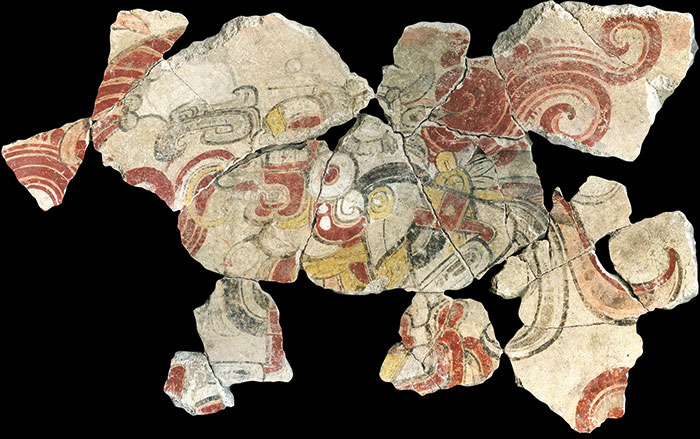 (Digital image by Heather Hurst)
(Digital image by Heather Hurst) -
Features November/December 2021
Gaul's University Town
New excavations have revealed the wealth and prestige of an ancient center of learning
 (Digital image by Heather Hurst)
(Digital image by Heather Hurst)


